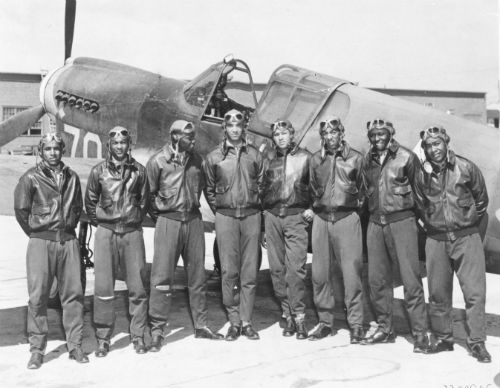Looking for something else, I came across Adam Gopnik’s 2008 New Yorker essay: “The Back of the World: The troubling genius of G.K. Chesterton,” which was published to mark the occasion of the 100th anniversary of the writer’s dazzling masterpiece, The Man Who Was Thursday. (That novel really is an astonishing thing — creepy and hilarious, enlightening and bewildering. You should read it. You’re welcome.)
Chesterton is, like Oscar Wilde, more quoted than read, and he is, as Gopnik writes, “an easy writer to love …”
— a brilliant sentence-maker, a humorist, a journalist of endless appetite and invention. His aphorisms alone are worth the price of admission, better than any but Wilde’s. Even his standard-issue zingers are first-class — “Americans are the people who describe their use of alcohol and tobacco as vices;” “There is more simplicity in the man who eats caviar on impulse than in the man who eats grape-nuts on principle;” “‘My country, right or wrong,’ is a thing that no true patriot would think of saying. … It is like saying, ‘My mother, drunk or sober’” — while the deeper ones are genuine Catholic koans, pregnant and profound: “Blasphemy depends on belief, and is fading with it. If anyone doubts this, let him sit down seriously and try to think blasphemous thoughts about Thor.” Or: “The function of the imagination is not to make strange things settled, so much as to make settled things strange.” Or: “A key has no logic to its shape. Its logic is: it turns the lock.”
That’s terrific stuff. Chesterton had a knack for making his insights sound like jokes and his jokes sound like insights. But he is also, to use the current euphemism, problematic, as Gopnik also discusses: “Those of us who are used to pressing his writing on friends have the hard job of protecting him from his detractors, who think he was a nasty anti-Semite and medievalizing reactionary, and the still harder one of protecting him from his admirers, who pretend that he was not.”
Gopnik’s essay is particularly sharp in confronting, and trying to understand, Chesterton’s “Jew-hating”:
A reader with a casual interest in Chesterton’s life may have a reassuring sense, from his fans and friendly biographers, that his anti-Semitism really isn’t all that bad: that there’s not much of it; that a lot of it came from loyalty to his younger brother Cecil, a polemical journalist in the pre-war years, and to his anti-Dreyfusard friend Belloc; that he had flushed it out of his system by the mid-twenties; and, anyway, that it was part of the time he lived in. …
Unfortunately, a little reading shows that there’s a lot of it, that it comes all the time, and that the more Chesterton tries to justify it the worse it gets.
And towards the end of his essay, Gopnik grapples with the fact that Chesterton’s anti-Semitism “is not incidental” but is inextricably tied up with the underlying logic and philosophy at the core of his thinking. As with Martin Luther, “The anti-Semitism is easy to excise from his arguments when it’s explicit. It’s harder to excise the spirit that leads to it.”
That concluding argument is, I think, a smart and wise discussion and a helpful one for anyone who admires Chesterton and his often otherwise admirable writing. But here I’m not so much interested in Chesterton himself as I am in what we can learn from him about how bigotry works.
Here was a brilliant, educated man with a nimble wit, religious devotion, and a capacity for empathy, irony and humility. And yet even he managed to wind up obsessively consumed by the willful ignorance, stupidity, blasphemy and arrogance of bigotry. He had education, Jesus, and a sense of humor — three things that it seems ought to preclude such crude prejudice and hate. Yet they did not rescue him. Or, at least, he did not allow them to rescue him. He still swallowed whole all the cognitive tricks that such bigotry teaches and requires — and then fortified them with his formidable intellect, religious fervor, and wit.
After World War I, Gopnik writes, “Chesterton’s hatreds became ugly and obsessive”:
From then on, however, Chesterton hammers relentlessly at the idea that there is “a Jewish problem,” the problem being that Jews are foreigners, innately alien to the nations into which they’ve insinuated themselves. Writing in 1920, he tells us that Jews are regarded, by the Arabs in Palestine, as “parasites that feed on a community by a thousand methods of financial intrigue and economic exploitation.” Chesterton then adds that this charge may not be entirely true but needs to be addressed by the Jews — as though they were compelled to consider themselves permanently on trial by their persecutors. Later in the decade, writing about a journey to America, he says, in defense of Henry Ford, “No extravagance of hatred merely following on experience of Jews can properly be called a prejudice. … These people of the plains have found the Jewish problem exactly as they might have struck oil; because it is there, and not even because they were looking for it.”
It’s a deeply racial, not merely religious, bigotry; it’s not the Jews’ cupidity or their class role — it’s them. In his autobiography, Chesterton tries to defend himself by explaining what it is that makes people naturally mistrust Jews. All schoolboys recognized Jews as Jews, he says, and when they did so “what they saw was not Semites or Schismatics or capitalists or revolutionists, but foreigners, only foreigners that were not called foreigners.” Even a seemingly assimilated Jew, in Chesterton’s world, remains a foreigner. No one born a Jew can become a good Englishman: if England had sunk into the Atlantic, he says, Disraeli would have run off to America.
The dynamics here, the mental mechanics and gymnastics at work, are all too familiar to anyone who has ever visited the United States. Everything Chesterton says there about “the Jews” is precisely what white American culture has been teaching for centuries about “the blacks.” Them. Perpetual foreigners whose citizenship is always, and will always be, suspect. Parasites. Self-evidently other. “People naturally mistrust” them because they’re a separate category — not a part of the category of “people.”
And then, in our more generously liberal moments, a passing acknowledgement that all of these accusations may not be entirely true in every case, but that they still need to be addressed by the accused who are “compelled to consider themselves permanently on trial.” The existence of the prejudice is thereby acknowledged, but only in order to claim that its existence somehow is self-justifying. Where there’s smoke there must be fire. Guilty unless proven somewhat less guilty. We couldn’t possibly be treating them this way if they didn’t somehow deserve it.

Chesterton’s crooked construct of what he insisted on calling “the Jewish problem” can help us better understand the crooked lies embedded in white American culture that insist on imagining white America has a “Black Problem.” They are the same lies — the same deliberate deceptions and delusions. This is the infernal mechanism, the cognitive machinery of hate. This is how bigotry works, and how it persists.
A grand jury in Ferguson, Missouri, is preparing to announce whether or not charges will be filed against a white police officer who shot and killed an unarmed black teenager. Watch the way this is discussed and the way this discussion is framed. It will be, as it has been, discussed in corrosive, corrupt terms that echo Chesterton’s vile anti-Semitism. The other is identified, classified as a perpetual foreigner, and defined as a “problem” that must somehow be dealt with. We will be given “both sides” of this debate — the side that argues that it is sad and regrettable when lethal police violence is administered lawlessly in response to the Black Problem, and the side that argues that such extra-legal lethal violence may sometimes be appropriate and necessary as a response to the Black Problem.
Both sides will lament that it has come to this, and they will shake their heads sadly that, after so many generations, the Black Problem remains intractable.












